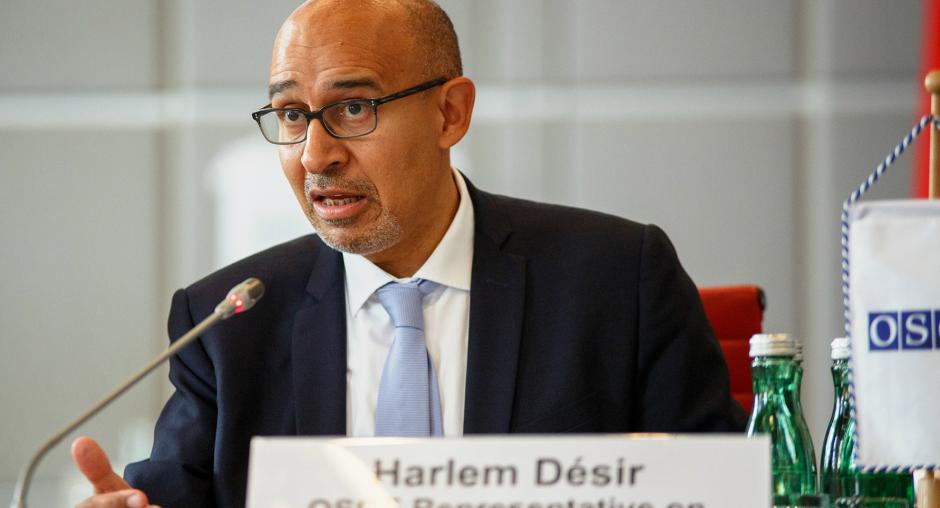Net neutrality in the United States must be safeguarded to ensure free flow of information, says OSCE media freedom representative

VIENNA, 5 December 2017 - The OSCE Representative on Freedom of the Media Harlem Désir today expressed concern about the proposal by the United States’ Federal Communications Commission (FCC) to repeal existing provisions ensuring net neutrality, the principle that Internet providers must treat all online traffic equally and without undue interference. As a result of the plan, announced by FCC chairperson Ajit Pai on 21 November, internet service providers would be able to charge more for certain content and restrict access to some sites.
“Giving Internet service providers the power to discriminate against content, to prevent or slow down access to websites, and to charge additional fees for certain services goes against international standards, OSCE commitments on free expression and freedom of the media,” said Désir. “The threat to the principle of net neutrality can result in a host of challenges for freedom of expression and freedom of the media online, including the formation of a hierarchy of information and available data, a ‘chilling effect’ on digital media innovation and an interference with individuals’ freedom to choose what content they see online without interference or discrimination.”
This decision would reverse a 2015 FCC Order seeking to protect the “Open Internet” and prohibiting blocking, throttling or paid prioritization of Internet content. This decision in 2015 was welcomed by the OSCE Representative as a landmark decision to guarantee a free and open Internet with the free flow of information as one of its fundamental characteristics, protecting media freedom online (www.osce.org/fom/143066).
“It is especially problematic that this proposed decision by the FCC was not based on an open and broad consultation process, but internal decision-making,” said Désir. “The United States government should be reinforcing and safeguarding the principle of net neutrality. I call on the United States authorities to reject the FCC’s proposal.”
In the 2011 Joint Declaration “On Freedom of Expression and the Internet” (www.osce.org/fom/78309), the OSCE Representative on Freedom of the Media, together with Special Rapporteurs on freedom of expression from the UN, the Organisation of American States (OAS) and the African Commission on Human and Peoples’ Rights (ACHPR), emphasized that international human rights law prohibits “discrimination in the treatment of Internet data and traffic, based on the device, content, author, origin and/or destination of the content, service or application”. In their 2014 Joint Declaration “On Universality and the Right to Freedom of Expression” (www.osce.org/fom/118298), they reaffirmed the need for states “to actively promote universal access to the Internet regardless of political, social, economic or cultural differences, including by respecting the principles of net neutrality”.
In 2014 the OSCE Representative submitted a legal analysis on net neutrality rules prepared by Dawn Carla Nunziato, a law professor at The George Washington University Law School, which is available at www.osce.org/fom/119822.
The OSCE Representative on Freedom of the Media observes media developments in all 57 OSCE participating States. He provides early warning on violations of freedom of expression and media freedom and promotes full compliance with OSCE media freedom commitments. Learn more at www.osce.org/fom, Twitter: @OSCE_RFoM and on facebook.com/osce.rfom.
